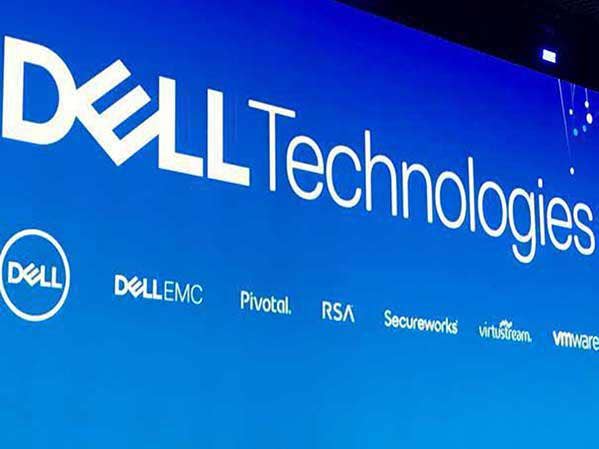Dell Delays Reopening Offices Due To ‘Red’ COVID-19 Statuses
“It’s been a long, hard road, and we hoped we wouldn’t find ourselves back here,” says Dell Technologies’ Jeff Clarke in an internal memo to employees.

Dell Technologies, which employs tens-of-thousands of people in the U.S., is delaying plans to reopen its offices across the nation due to the recent surge in the COVID-19 delta variant.
The $94 billion Round Rock, Texas-based PC and infrastructure giant had previously targeted reopening many of its U.S.-based offices on Sept. 7, 2021.
“It’s been a long, hard road, and we hoped we wouldn’t find ourselves back here,” said Jeff Clarke, chief operating officer and Vice Chairman of Dell Technologies in a recent internal memo to employees. “Sadly, due to the recent surge in the COVID-19 delta variant, several locations previously showing green on our COVID-19 Risk Reference are now red. We expect this trend to continue for the next several months.”
[Related: Dell-VMware Spin-Off Deal ‘Likely’ To Close By October: Sources]
Dell determines if an office can be indexed green or red status for reopening based on COVID-19 cases, deaths and percentage of vaccinated individuals. Clarke said Dell relies on science and data to determine when to reopen offices.
“In all red locations – which now includes most of the Americas and portions of Europe and Asia – those working from home today will continue doing so,” Clarke said.
Clarke didn’t provide a timeframe on when Dell would officially reopen its U.S. offices. “When we have line of sight to new reopening dates we’ll communicate to you with plenty of time to plan,” Clarke said.
Jennifer Saavedra, Dell’s chief human resources officer, said in a recent LinkedIn post that Dell believes upwards of 90 percent of the company’s roughly 158,000 global employees could be working in some hybrid form in the future.
“We believe that nearly 90 percent of our roles will have some degree of flexibility in where and how they work,” said Saavedra. “This isn’t new for us. Dell Technologies has always been a company that puts our people at the center of our decisions. So, rather than issuing a mandate for all team members about where and how work gets done, we’ll have a philosophy that guides us. … We’ll look at the business requirements and ask our people about their personal experiences, their preferences, what motivates them and what their ideal work situation looks like.”
In an interview with CRN in March, Dell Technologies founder and CEO Michael Dell said remote working “is absolutely here to stay.”
“If someone had proposed this before coronavirus, there would have been all kinds of reasons why you couldn’t do this: it’s too hard, it’s impossible, etc. But we had to do it and now we have learned behaviors that I believe will continue on with us,” said Michael Dell. “Remote and hybrid work is absolutely going to continue.”
Michael Dell said companies that don’t offer a remote or hybrid working option for employees will have trouble hiring compared to companies that do. Dell set up a future scenario when everyone is vaccinated, and the COVID-19 pandemic is in the rear view mirror.
“Imagine two hypothetical companies. One company says, ‘Everyone is back in the office all the time – five days a week. I expect you to show up at 8 a.m. in the morning and stay for the day.’ Another company says, ‘You know what? We’re going to provide flexibility to our workforce. There might be certain days when we decide that we’re all going to come together because we want to collaborate in person, but other days, you can work from wherever you want. You can work from home. If you want to come into the office you can, but you’re not required too. You’re going to have flexibility,’” said Dell. “Now, which company do you think is a more attractive place to work? This is not really a hard test.”
In terms of travel, Dell’s Clarke said domestic travel must be deemed “business-critical or customer-critical” and approved by a direct manager and vice president. For international travel, it must also be deemed business- or customer-critical with employees needing approval of an executive vice president or president. “In those rare cases, all local COVID-19 protocols must be followed,” Dell’s Clarke said.
In his memo to employees, Clarke did not say whether Dell — which also owns a majority stake in VMware — will require employees to be vaccinated in order to return to the office in-person. Dell employees who are working onsite must wear masks when mobile even if their fully vaccinated.
“The data and science tell us this is the right decision for now,” said Clarke. “It also reinforces that vaccines help. I encourage you to get vaccinated, where vaccines are available.”